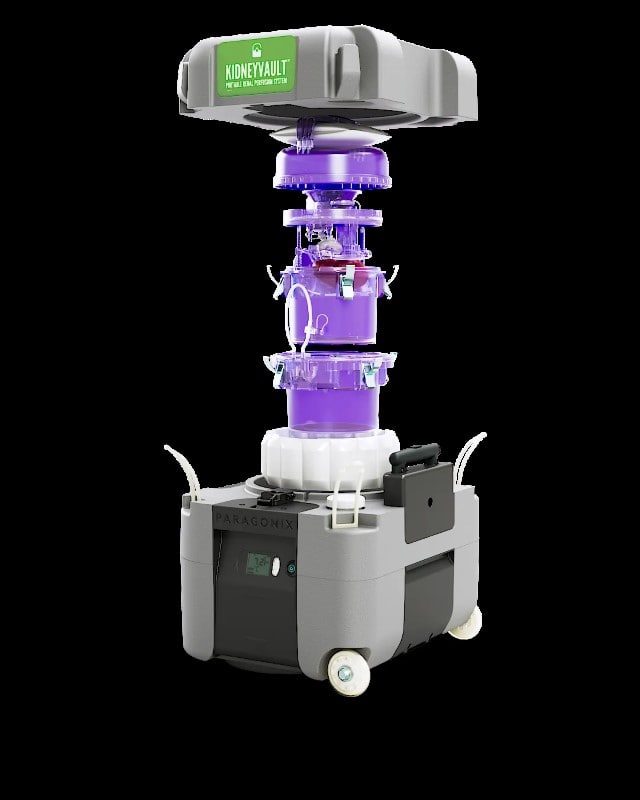
Compared with dialysis, treating end-stage renal disease (ESRD) with kidney transplantation is associated with significant improvements in survival and quality of life. However, recipients of kidney transplants may experience complications and face increased risk of morbidity and mortality, despite the use of modern immunosuppression regimens and improved surgical techniques.
Complications experienced by kidney transplant recipients include cardiovascular diseases, diabetes, infections, malignancies, and venous thromboembolism. The leading cause of mortality in kidney transplant recipients is cardiometabolic disorders. Previous studies have indicated that 15% of deaths at 10 years following transplantation result from cardiovascular events. Nonfatal cardiovascular events are also associated with future allograft failure and increased mortality. The second most common cause of mortality in this patient population is infection. Kidney transplant recipients are at risk of serious infections due to the need for lifelong immunosuppression. Malignant neoplasm is third among causes of death in kidney transplant recipients, and venous thromboembolism is fourth.
There are multifactorial causes associated with these complications; however, they may be caused by monogenic forms of disease in a subset of patients. Identification of monogenic conditions that predispose patients to kidney disease and to complications following kidney transplant may
enable clinicians to initiate personalized management plans for those at risk, beginning during the perioperative period.
Becky M. Ma and colleagues conducted a clinical investigation to develop a transplant morbidity gene panel to assess its diagnostic yield and identify its potential impact on clinical care in the kidney transplantation space. Results were reported in Kidney International.
Kidney transplant recipients followed at Columbia University Irving Medical Center, New York, in a biobanking study were recruited from October 2007 to January 2023 (n=1,590). Genomic DNA samples were isolated, from samples gathered from patients per standard protocol. The diagnostic yield of actionable variants was calculated on counts of individuals with variants classified as pathogenic or likely pathogenic.
The transplant morbidity panel developed by the researchers consisted of 355 genes. The majority of the panel represented genes associated with cardiovascular events and with diseases associated with increased risk of cardiovascular events (hypercholesterolemia or diabetes; 198 genes, 56%). Genes associated with malignant neoplasm, adult-onset immunodeficiency, and thrombophilia were also included (105 genes,
30%; 39 genes, 11%; and 13 genes, 4%, respectively). Ninety-seven (27%) genes in the panel were associated with Mendelian kidney and genitourinary disorders, and 67 (19%) genes were also part of the American College of Medical Genetics and Genomics-recommended genes for secondary findings.
Study participants received their first kidney transplant between May 1970 and October 2022. Most (98.3%) of the patients were ≥18 years of age. Mean age at the time of first kidney transplant was 43.6 years, 60.3% were male, and 25.3% self-identified as non-White, 26.8% as Hispanic, and 46.2% as White. Causes of ESRD were glomerulopathy (38.7%), diabetic kidney disease (16.7%), congenital/cystic kidney disease (13.7%), hypertensive nephropathy (10.9%), tubulointerstitial disease (2.6%), other (6.8%), and chronic kidney disease (CKD) of unknown origin (10.6%). Of the total cohort, 1,010 individuals had been included in a previous study investigating the diagnostic utility of exome sequencing in patients with CKD, and 69 of those 1,010 (6.8%) had a known monogenic cause of CKD.
Results of the analysis of the morbidity gene panel identified 155 variants associated with 56 monogenic disorders in 144 of the 1,590 (9.1%) study participants. In the cardiovascular category, the diagnostic yield was 5.1% (81/1,590). In the malignant neoplasm category, the yield was 2.1% (34/1,590); in the immunodeficiency category, the yield was 1.8% (29/1,590); and in the thrombophilia category, the yield was 0.2% (3/1,590). Eight of the 1,590 (0.8%) participants had dual genetic diagnoses; three of those had genetic diagnosis under two different disease categories.
More than half of the study participants had diagnostic variants in one of nine genes (listed in descending order): TNFRSF13B, TTR, BRACA2, KCNQ1, PLIN1, HFE, HNF1A, TSC1, and MYBPC3. Most of the monogenetic disorders were of autosomal dominant inheritance, and 145 of the 155
had been previously reported.
Among the participants with genetic disorders, identification of the disorders and risk factors could allow clinicians to create specific risk factor targets in nine of the 144 individuals with monogenetic disorders (6.3%), schedule intensive surveillance in 140 individuals (97.2%), use preventive measures in 19 individuals (13.2%), prescribe disease-specific therapy in 92 individuals (63.9%), refer 130 individuals to a specialist (90.3%), and revise immunosuppressive regimens in 82 individuals (56.9%).
Analysis of the Mendelian kidney and genitourinary disorders gene panel revealed 170 diagnostic variants associated with 37 monogenic disorders in 158 individuals, for a diagnostic yield of 9.9%.
In citing limitations to the study findings, the researchers mentioned not including mitochondrial disease in the gene panel, not examining the cost-effectiveness and long-term benefits of incorporating the transplant morbidity gene panel as part of the pretransplant workup, and the lack of guidelines specific to the transplant population to address cohort-specific risks and needs.
In summary, the authors said, “Our findings illustrate the clinical utility of the morbidity gene panel in kidney transplantation and should be applicable to any solid organ transplantation. By integrating genetic testing early in transplant evaluation, a management plan can be individually tailored, aiming to reduce complications. … Studies to longitudinally evaluate the impact of both monogenetic and polygenetic risk on transplant treatment decisions, allograft survival, overall morbidity, and mortality are needed. … Incorporating genetic diagnostics for transplant morbidities
would enable personalized management in pre- and post-transplant care.”
Source: Kidney International. 2024;106(1):115-125







 © 2025 Mashup Media, LLC, a Formedics Property. All Rights Reserved.
© 2025 Mashup Media, LLC, a Formedics Property. All Rights Reserved.